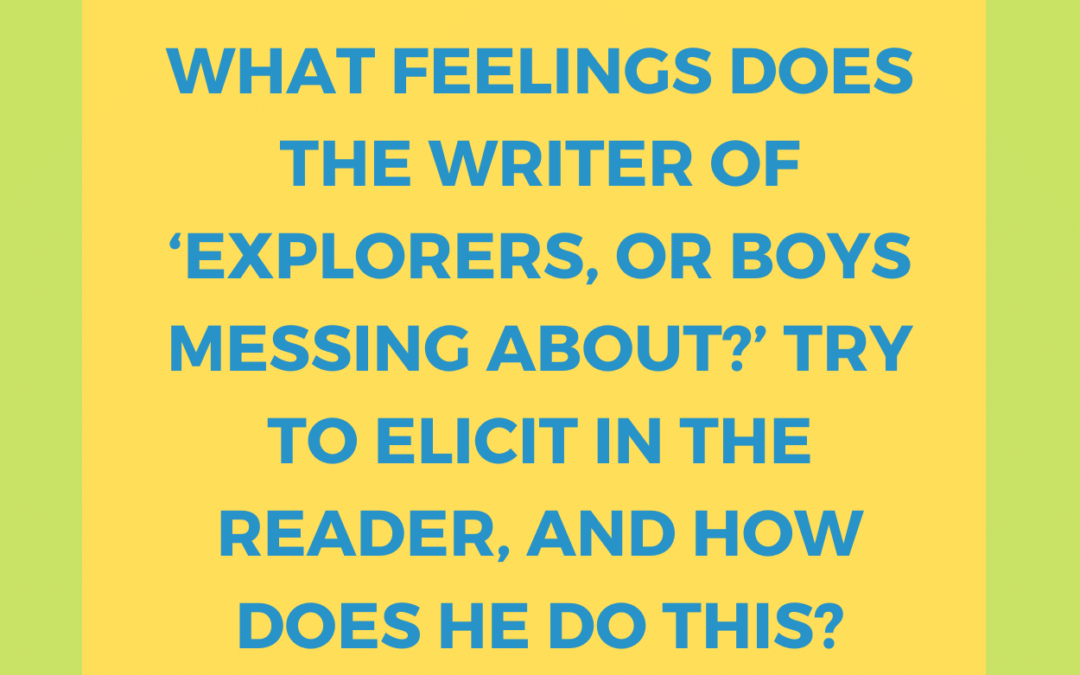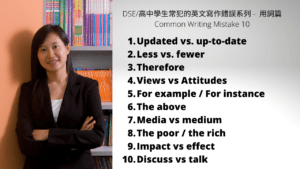Edexcel English IGCSE: Explorers, or boys messing about? by Steven Morris
Q2. What feelings does the writer of ‘Explorers, or boys messing about?’ try to elicit in the reader, and how does he do this?
In your answer, consider:
- the men’s planning and execution of the trip;
- the men’s social responsibility;
- the writer’s use of language.
You should refer closely to the passage to support your answer. You may use brief quotations.
Edexcel English IGCSE Model Essay by an Expert
In this article, the writer attempts to elicit anger and indignation in the reader. However, the tone of the article is also quite light-hearted, with some elements of humour.
By portraying the men as naughty children, the writer elicits humour but also anger in the reader. This extended metaphor is humorous, particularly when expressed by one adventurer’s wife. She suggests that they will “have their bottoms kicked” as a punishment: a tongue-in-cheek reference to their boyish enthusiasm for adventures. However, this humour is combined with the reader’s disapproval, as the writer highlights the terrible consequences of their naivety. The phrase “new adventure” is evocative of a childhood story, but the tone changes drastically with the emotive vocabulary describing their accident: there was nearly a “tragedy” when their helicopter “plunged” into the sea. This angers the reader by showing that their humorous childishness had terrible consequences.
The dramatic description of the disaster shocks the reader, and further angers them that the adventurers took such a dangerous risk. He begins the description with the phrase, “The drama began,” preparing the reader for the exciting description of the event. Action verbs are used to reflect the speed and urgency of the event: the helicopter “ditched” into the water, the men “scrambled” into their liferaft, and the rescue boat “streamed” through water to find them, for example. This tense description highlights to the reader how much danger the men were in; when combined with the knowledge that they were naïve and perhaps under-prepared, the reader is angry that they took such a life-threatening risk.
The reader is also informed about the cost of the rescue operation, and is made to feel indignant since the cost is personal to them. In the headline, the intended reader – likely to be a taxpaying adult – is told that they will get the “rescue bill”. This metaphorical language – the image of a physical “bill” received by members of the public – makes the reader feel irate about having to pay for the men’s failed adventure. The writer also emphasises the scale of the rescue operation, for example by listing the several organisations involved in the rescue: “the Royal Navy, the RAF and British coastguards.” The writer also provides shocking statistics, such as that the ship that went to rescue them was “180 miles away”. The writer highlights the effort gone to and the expenses incurred, to remind the reader of the financial consequences of the men’s trip.
The issue of the cost to taxpayers makes the reader feel disappointed in and irritated by the men. However, the final image of the article is that of the men being punished like naughty children, showing that the writer wishes to entertain the reader as well as anger them.



